AudioCulture
The noisy library of New Zealand music
Te pātaka korihi o ngā puoro o Aotearoa
Teeks
His first EP The Grapefruit Skies shot into the Top 10 in 2017 and its lead single ‘If Only’ has exceeded five million streams. Teeks then collected an album’s worth of material but released the first eight tracks as two EPs – thereby collecting together millions more streams before the album had even been released.
It was a long way from where Teeks had first started his music career. Few who saw Te Karehana Gardiner-Toi perform at Smokefreerockquest and Pacifika Beats back in 2011 would have imagined they were seeing a young soul star on the rise. His high-school band, Ahomairangi, was predominantly a reggae band and he was one of two singers who presented their mix of songs in English and te reo Māori.
Teeks was the main songwriter for the group and also won Most Promising Vocalist at the finals in Auckland, while the band won the Oro Taiohi award for music in te reo Māori. His high school at the time, Taipa Area School, was the latest in a long run of schools that the young Te Karehana Gardiner-Toi had attended.
His parents were teachers so they moved regularly, starting in his mother’s hometown of Tauranga before moving around Northland, particularly the Hokianga area where his dad is from (Teeks’ whakapapa draws from Ngāpuhi, Ngāi Te Rangi and Ngāti Ranginui). Teeks’ father wrote songs himself through his teaching work, particularly songs in te reo Māori for kapa haka groups, and passed on the basics of playing guitar.
Debuting as a soul singer
When Teeks finished high school, he studied music at Unitec and gradually moved towards soul music rather than the reggae of his youth.
“I started to figure out what would complement my voice the most. I was introduced to different sounds through my classmates saying ‘have you heard this dude?’ Growing up, I wasn’t heavily invested in music. I just heard what my dad was listening to, which was mainly Bob Marley. Although some things were closer to the direction I’d take later on: Stevie Wonder, Alicia Keys. I didn’t even know who D’Angelo was until I got out of school. That was a whole new sound that switched on something inside of me, so I went down that route.”
In 2014, Teeks was given the chance to attend Pao Pao Pao – the Māori music mentoring programme created by Dr Hirini Melbourne. The course was a set of weekend workshops held over five weeks and Teeks found it invaluable.
“I STARTED TO FIGURE OUT WHAT WOULD COMPLEMENT MY VOICE THE MOST.”
“I met all these prolific Māori artists that I’d looked up to as a kid – Tama Waipara, Maisey Rika, Seth Haapu and Rob Ruha. Just to have their endorsement makes you think ‘maybe I am good at this, maybe I do have a future.’ Then Tama actively set things up for me so I had a pathway after the Pao Pao Pao workshops, organising for me to go to New York and record some songs I had already written.”
Waipara had previously lived in New York and had a creative friendship with another expat, Aaron Nevezie, who had his own studio, the Bunker, where Waipara’s first EP was recorded. Nevzie’s partner Jeremy Most was keen to produce Teeks’ music, so plans were made for a recording session, with Waipara accompanying him on the trip. Teeks sent two song ideas by using his phone to record himself singing and playing the basic guitar part.
“By the time I got to New York, Jeremy already tracked ‘If Only’. So, when I got there, I recorded the vocal and it was easy. I didn’t have that much creative control, but I was still developing as an artist, so I think it was good to have that guidance. Then we worked on ‘Change’ in the studio together and it was amazing for me to witness the process and learn.”
Teeks returned to New Zealand with two songs completed and the early buzz around his work was enough for him to receive the Emerging Artist Award at the Waiata Māori Music Awards in 2015. At the time, he supported himself by teaching te reo Māori night classes at Unitec three nights per week. His proficiency in te reo came through a childhood of attending schools with a focus on teaching the language. His involvement in kapa haka was one way he developed his strong singing voice.
Meanwhile, his personal life was going through a period of upheaval with his grandfather and aunt passing away during the same period in which his sister lost a baby. Teeks processed these events by feeding them into his songwriting. His song ‘Never Be Apart’ is about keeping alive the memory of a loved one. ‘Wash Over Me’ was his response after his father asked him to sing a gospel song for his grandfather, and the lyrics express a desire for rejuvenation.
Teeks’ career was kickstarted once more through the efforts of his new manager, Cilla Ruha. She is the wife/manager of Rob Ruha and first came in contact with Teeks through the Pao Pao Pao workshops. She arranged for Teeks to record his newer songs at The Lab Recording Studio in Mt Eden, Auckland, with experienced in-house engineer Ollie Harmer.
“I also worked with Seth Haapu and Mahuia Bridgman-Cooper, who helped me put my ideas into song forms. Seth also played the piano, Mahuia played some bass, and I had Chris O’Connor on drums. I knew him because he was one of my tutors at Unitec.”
Bridgman-Cooper also brought to bear his skills as a composer and violinist. Teeks laid down some basic guitar for songs such as ‘Never Be Apart’ but the majority was done by Jeremy Toy (Opensouls and live guitarist for Aaradhna) who has a studio in the same building. The songs were collected together as the Grapefruit Skies EP (2017) with the name coming from the bittersweet feeling of looking at a sunset and remembering those who’ve been lost.
The music video for ‘If Only’, created by Shae Stirling, drew inspiration from a photo of Teeks’ grandfather when he was young and emulated the style of that era by being filmed among the art deco buildings in Napier. The catchy song and slick video were a perfect introduction to Teeks as a new artist and helped the EP reach the Top 10.
Stirling provided a follow-up video for ‘Never Be Apart’, shot with a full band in a majestic church. Both songs would join ‘Wash Over Me’ in achieving millions of streams online, and overall streams for the EP pushed beyond 12 million.
On the rise
Teeks’ achievements saw him take out the inaugural Best Māori Artist Award at the Vodafone New Zealand Music Awards in November 2017 and he gave his acceptance speech in te reo Māori. On the way to the stage, he stopped to hongi with members of Alien Weaponry (who were vying for the same category) and paused again when the kapa haka group hired to greet attendees at the awards broke into a haka in celebration of his win.
That year he also recorded a song in te reo with Ria Hall, whom Teeks is related to. Both had roots in Tauranga and so they performed a waiata by a local songwriter, ‘Te Pou O Te Tangata’. It appeared on the compilation Manea Tua2 (2017) which was primarily fronted by Amomai Pihama and Hemi Peke from bilingual 90s pop group, Aria.
In 2018, Teeks quit his part-time job to focus on his music career.
Hearing Teeks sing on Ria Hall’s synth-heavy modern funk track showed how adaptable his voice was. He demonstrated this again the following year, appearing on ‘Live Stream’ by hip hop group High Beams (a collaboration between Illbaz, Melodownz, and Raiza Biza) and returned to reggae on the UNICEF charity single ‘One Love’, appearing alongside two of Bob Marley’s children.
In 2018, Teeks quit his part-time job to focus on his music career. He started the year with an appearance at the Bay of Islands Music Festival and a sold-out show at the Wellington Arts Festival. In May, he headed to London where he had some writing sessions and performed a show at the St Pancras Old Church. He rounded out the year by appearing at the APRA Silver Scroll Awards with pianist Nick Dow and Ngā Tumanako kapa haka, performing the song that took out the Maioha Award, Ria Hall’s waiata ‘Te Ahi Kai Pō’.
The following year saw more high-profile performances, including slots at Womad in New Zealand, Womadelaide in Australia, and a sell-out show at the Auckland Town Hall with the Auckland Philharmonia Orchestra.
Teeks and Hollie Smith performed the classic song ‘Whakaaria Mai’ for the Aroha Nui/You Are Us concert, held in remembrance of the Christchurch terror attacks on 15 March 2019. A bilingual version of the hymn ‘How Great Thou Art’, Howard Morrison had taken ‘Whakaaria Mai’ to No.1 in 1981. The version by Teeks and Smith was later recorded and appeared on the Offering (2019) compilation, which raised money for the Salvation Army.
Teeks also had a track on the 2019 Waiata Anthems compilation, which saw local hits being sung in te reo Māori by the original artists. He found that translating his track ‘Never Be Apart’ (as ‘E Kore Rawa E Wehe’) required some serious thought. He wanted it to sound as natural as possible and enlisted Rob Ruha to help him with re-working the lyrics to suit.
Something to feel
Over this time, Teeks began working on his debut album. He went into Roundhead studio with Simon Gooding, an experienced engineer whose career included mixing a song by P!nk; he had his own streaming successes with his group The Map Room (their track ‘Hold Me Up To The Sun’ garnered over two million streams). Teeks found Gooding was a helpful collaborator.
“Simon has an amazing ability to make things sound really good. For me, it was great as a match because as a person he’s easy to work with and not too intense. He maintains the same composure the whole way through. It was my first time taking charge of a record and producing songs, so it was a good pairing because I felt like I was more confident to do that. If I worked with someone who was more hands on, I don’t know if I would’ve had the same confidence.”
Teeks brought along voice demos of songs he had written, and the pair would work from scratch to work out what production might suit them. Back in 2017, Teeks met pop producer Josh Fountain, known for his work with Benee, as well as being one of the creative forces behind Leisure and Kidz In Space. They were paired at a Songhubs songwriting event put on by APRA and Teeks later decided to pursue further songwriting sessions.
“We wrote the songs ‘These Hands’ and ‘Just For Tonight’ together and then the production was done at Roundhead. Josh also did a bit of extra finessing – not just on those two songs, but other songs too. I think that was quite valuable in order to get that balance between drawing from the classic sound of soul music but making it sound modern. The most important thing is that it doesn’t date so that in a few years’ time it still sounds current.”
By early 2020, Teeks was nearing completion of the album and was signed to Sony Music.
Teeks and Gooding also used recordings by overseas singers as benchmarks, especially ones in which the singing was at the forefront, such as Kwabs, Daniel Caesar, and Adele. Fortunately, Teeks now had a live band that he’d been working with for a while, so could bring in musicians that were already attuned to what he was trying to achieve, such as Abraham Kunin (guitar), Marika Hodgson (bass), Tom Broome (drums), Adam Tobeck (drums), and Nick Dow (piano).
By early 2020, Teeks was nearing completion of the album and was signed to Sony Music for its release – but their plans were scuttled by the arrival of the Covid-19 pandemic. It seemed like a tough time to promote a debut album by a young artist and certainly any plans to tour in support of the release would be severely hampered.
However, Teeks had noticed how much more common EPs had become over the previous few years and so came to a decision with his management and label to instead drip-feed the new tracks via a pair of four-song releases before the album release. Teeks said this had the side benefit of ensuring that each song would receive its due from listeners.
“When there’s just four songs, there’s time to sit with them for a month or two. You’re not overwhelming or oversaturating your audience. They can appreciate the songs before I release the next part.”
The two EPs were simply titled I and II, though Teeks did have a thematic concept of them that he shared with his team, tagging the EPs as the ‘Invitation’ and ‘Surrender’, with the album being the ‘Reveal’. The first EP had the two tracks he’d written with Josh Fountain and certainly had the pop feel to draw in new listeners, whether it was the high drama of ‘Just For Tonight’ or the surprisingly funky ‘These Hands’ with its bouncy, grooving bassline.
However, the first single was the piano ballad, ‘Without You’, which pointed forward to the heart-on-your-sleeve emotionality of the album to come. The song’s music video debuted on the website of Vogue which called him “New Zealand’s Soulful Singer to Know.” The video was shot in Hokianga and included an appearance by Teeks’ sister. It was shot in black and white, with Teeks shown on a deserted country road with his car abandoned behind him. The rain pours down and we see him wading into the sea.
The imagery also ties in with the black and white photograph of rippling water on the EP cover. Teeks felt very strongly about how the visual and musical elements went together.
“It felt cool to start in black and white, then slowly bring colour in on the later videos and reveal the album that way … The coordinates on the EP cover point to a spot in the entrance to the Hokianga harbour, which is one of my favourite places in the world. My songs are also about navigating my internal emotions and I’m also drawing a parallel by acknowledging that my ancestors were the greatest navigators to ever live. Water is also very symbolic of emotion because of the way the ocean moves. The beaches in the Hokianga are on the west coast, they’re very rugged and unpredictable, but very majestic … I wanted to include water as much as I could. It felt like the proper symbol to tie everything together.”
On Teeks’ early song, ‘Wash Over Me’, water was seen as providing spiritual cleansing, something he saw as a common idea in te ao Māori – one example being the need to wash one's hands after visiting the wāhi tapu (sacred place) of an urupā (cemetery). On Teeks’ newer song, ‘Waves’, water was also presented as a symbol of being out of control – “wave after wave, it feels like I’m an ocean, caught between the motions of changing tide.”
Throughout the writing process for the releases, one of Teeks’ most important collaborators was pianist Nick Dow. Although Teeks primarily composed his songs on guitar, he was learning to write on piano and saw that some of his soul ballads would suit being driven by the instrument. This can be heard most strongly on the track ‘Remember Me’, which Teeks had written in embryonic form before putting the final pieces in place with Nick Dow and Mahuia Bridgman-Cooper, adding a pre-chorus and outro, as well as refining the chords in the chorus.
‘Without You’ gained 1.5 million streams and ‘Remember Me’ neared 2.5 million.
‘Remember Me’ became the lead single off the II EP and Teeks felt so strongly about what imagery would suit the song that he co-directed the music video with Ray Edwards. He sat on a stool in the foreground, a new tattoo saying ‘Surrender’ across his neck, while a pianist played in the background, with cutaway shots of a dancer and a drummer.
The EPs set the stage nicely for the album. ‘Without You’ gained 1.5 million streams and ‘Remember Me’ neared 2.5 million. Near the end of 2020, Teeks also headed out on The Invitation Tour, eschewing regular music venues for the more ambient surrounds of churches and historic halls around the country. All five dates were sell-outs.
The album Something To Feel debuted at No.1 in April 2021. It incorporated the previous EPs, along with four new songs and the single ‘First Time’. It included one of Teeks’ most epic ballads, ‘Through It All’, which he says was a purposeful attempt to ratchet up the emotion.
“That’s my job as an artist. Sometimes you’ve got to over-dramatise things. You’ve got to tell a story and be poetic about it. I imagine it being in a movie in a big dramatic scene or on a James Bond movie soundtrack. I’ve always wanted to write a song like that, I love that kind of drama and intensity.”
Teeks says his main aim is to express his own emotions in the most raw and honest way possible.
“Early in my life I didn’t really show that much emotion. I can hardly remember any times that I cried. There weren’t many. But this whole process is realising the importance of emotional awareness and vulnerability. The fact that it’s not weakness, it’s power and taking ownership of that so you can grow and mature as a human being. Rejecting toxic masculinity or colonial westernised notions of masculinity.
“Part of it was re-establishing my traditional values as a Māori person. My people were very conscious of emotion and expressions of love. Māori men may have gone to war, but when they came home they sang to their kids and raised them. They had layers. So part of my aim is reminding ourselves who we are.”
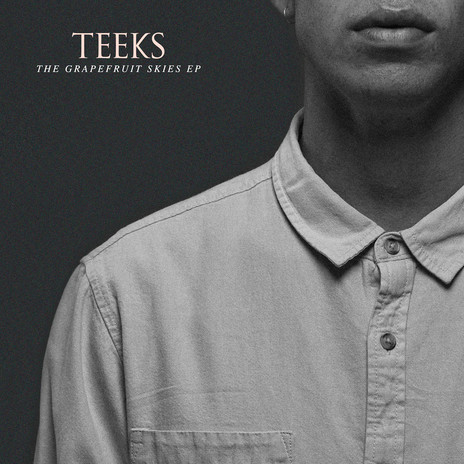

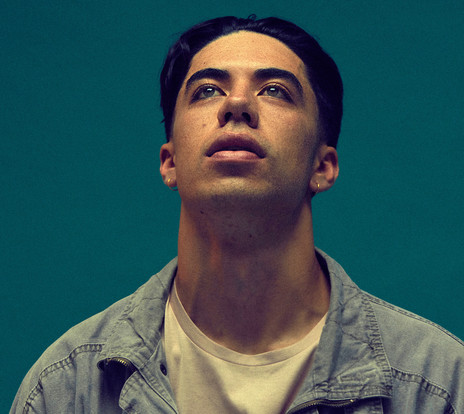
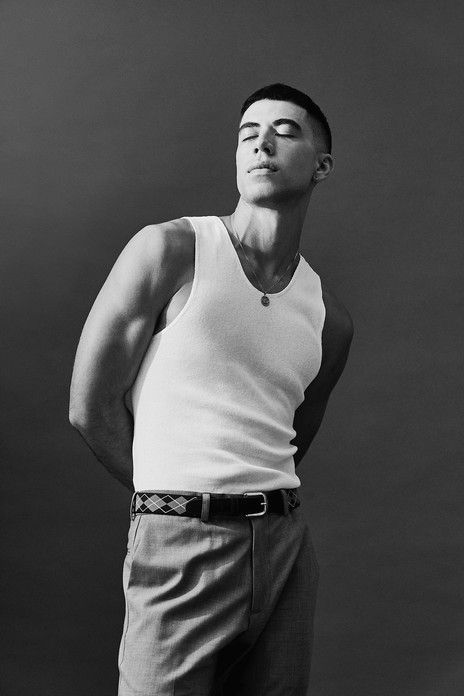
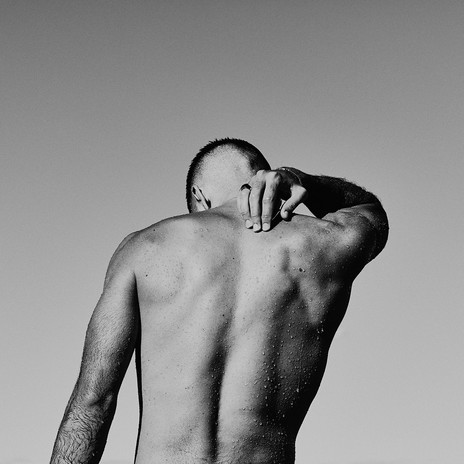
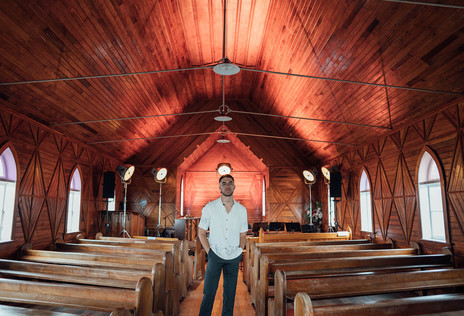
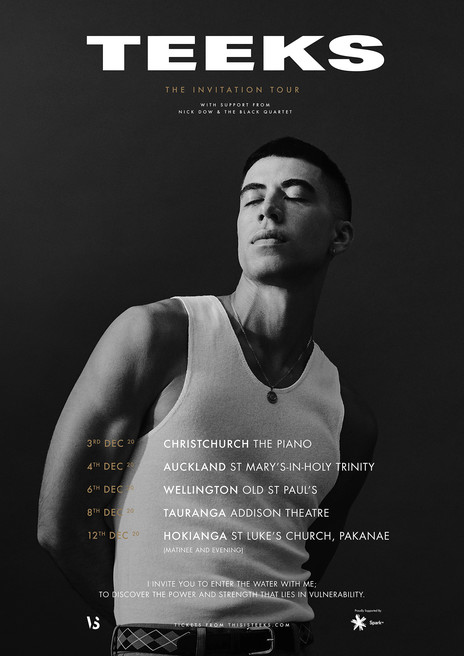
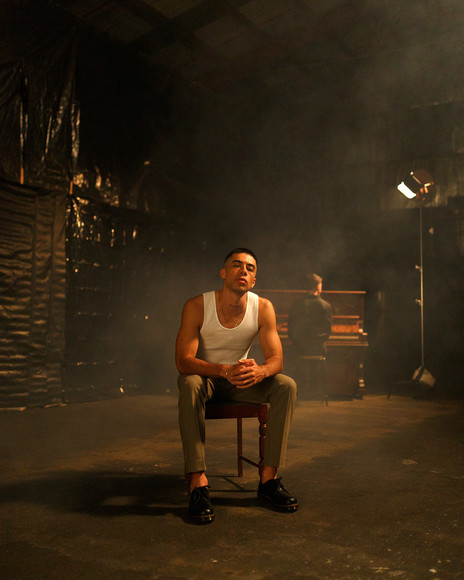
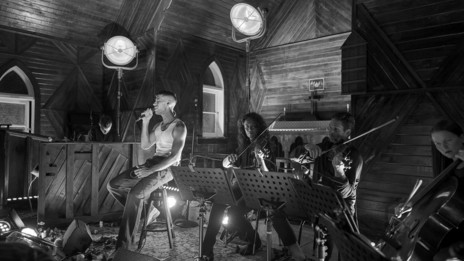
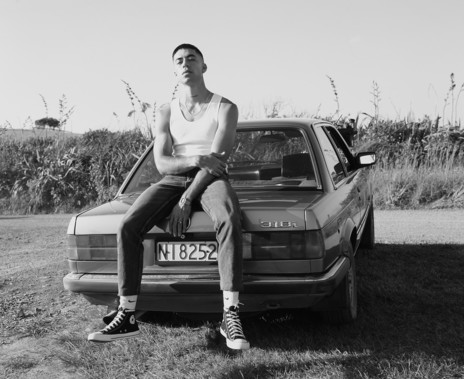
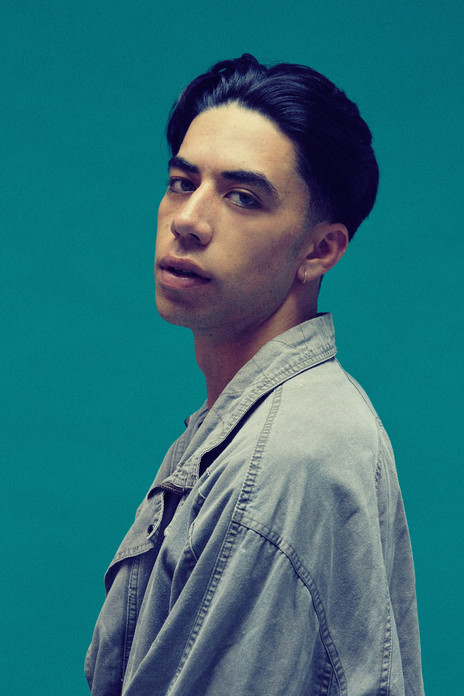
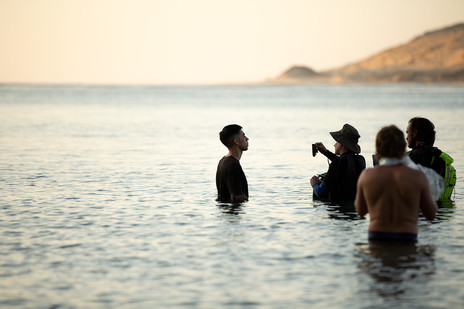

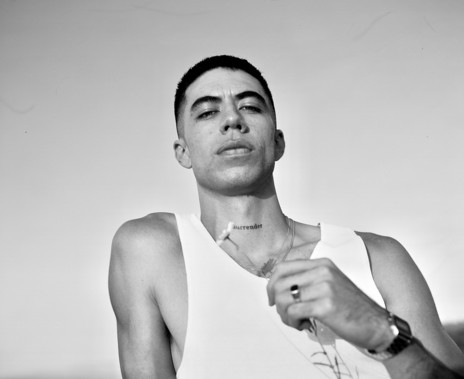
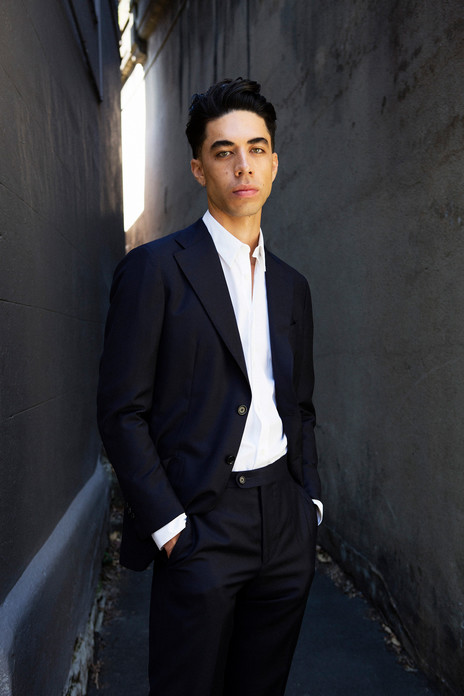
Sony
The year of Teeks - Leonie Hayden, The Spinoff, 2021
Vogue, August 2020: Teeks Is New Zealand’s Soulful Singer to Know
Stuff: Teeks bares his soul in emotional debut album, August 30, 2020
Visit our sister site
NZ On ScreenMade with funding from
NZ On Air


